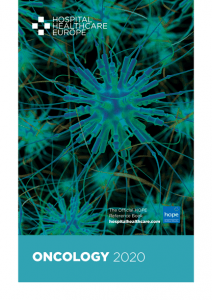Professor Beate Rau, Professor of Surgery at the Charite Campus, and colleagues gave their insight into how the pandemic had affected surgical oncology services at their facility
How has continuum of care and throughput been impacted by the pandemic?
During the COVID-19 pandemic, surgical therapy was severely impacted. Due to the reduced OR, ICU and normal ward capacities, elective surgery for non-malignant diseases were postponed. In our department, it was possible to treat all patients with malignant tumours regularly. However, the patient assignment to our outpatient clinic was significantly reduced. For elderly surgical patients, follow-up treatments were delayed or cancelled whereas further oncological treatment was not impaired.
What new protocols and guidelines were deployed to protect patients and clinicians during the pandemic?
In our department, several new standard operating procedures (SOPs) and guidelines were established and optimised during the pandemic. First, all general recommendations have been implemented (for example, distance rules, avoidance of unnecessary contacts, face masks). Second, all patients for hospitalisation were screened for SARS-CoV-2 and isolated until the test results were negative. Furthermore, SOPs were established for surgical procedures with a high risk of exposure to SARS-CoV-2 (for example, thoracic surgeries or surgical procedures for COVID-19 patients).
During the pandemic how, if at all, was new or existing technology employed or adopted?
In our department, we newly implemented the possibility of digital consultation hours for our outpatient clinic. For interdisciplinary meetings, consultations or conferences, the use of virtual platforms (for example, Cisco Meetings, Zoom or Microsoft Teams) has been significantly expanded to reduce the risk of unnecessary person-to-person contact.
How would you summarise the impact of the pandemic and what are the key learnings?
From our point of view, the pandemic largely impacted surgical treatment in our clinic and the long-term implications are still uncertain.
As recognised for other diseases, hospital admissions of patients with malignant tumors was reduced during the pandemic. It is unlikely that the incidence of malignant tumours decreased during the pandemic but a delayed diagnosis and treatment of patients with tumours seems very possible. Therefore, a key learning appears to be that it is crucial to maintain the patient care (diagnostics, treatment and aftercare) of non-pandemic diseases during a pandemic.
How quickly do you anticipate regaining momentum post-pandemic?
After the pandemic, we will successively (over several weeks) return to ‘normal’ patient care. However, we think that we will face the impact of the pandemic on non-COVID-19 diseases (especially malignant diseases) over many years and this will may indeed overwhelm our health care system.
Karl Hillebrandt MD
Beate Rau MD
Moritz Schmelzle MD
Charité Campus Virchow Klinikum, Berlin, Germany





